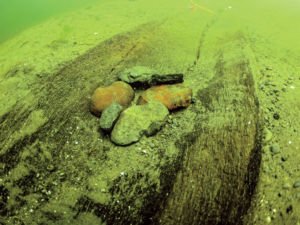An American lawyer who represented two senior Khmer Rouge leaders tried by the Extraordinary Chambers in the Courts of Cambodia (Khmer Rouge Tribunal) is urging for more to be done to provide sustainable healthcare as reparations for frail people who survived the ruthless regime.
In his 70-page paper entitled “Remedying Victims Of Khmer Rouge Crimes With Sustainable Healthcare Through Reparations Or Transitional Justice Principles”, Michael Karnavas said although much of the entire population was severely traumatised by the Khmer Rouge, formal mental healthcare services for survivors have been lacking or inadequate.
Karnavas, who has been a co-lawyer for both Ieng Sary, a senior leader of Democratic Kampuchea (1975-1979) and Meas Muth, the ex-navy commander of Khmer Rouge, said Khmer Rouge survivors in the Kingdom have not been meaningfully redressed although they legally have the right to reparation under the Universal Declaration of Human Rights (UDHR) and other international human rights treaties.
Karnavas added that the ECCC, established by UN and the Cambodian government, can only provide “non-compensatory and symbolic reparation” to nearly two million people who were killed and millions others scarred by the black-shirt regime.
“Neither of the ECCC’s founding documents – the Agreement and Establishment Law – provide for reparation. Yet, despite lacking legislative authority, when drafting the Internal Rules, the ECCC judges took it upon themselves to include the possibility for Civil Parties to seek reparation.”
“However, what was adopted by the judges differed from existing redress provisions in the Cambodian Code of Criminal Procedure and confined reparation to moral and collective awards,” he said.
Karnavas provided recommendations on implementing a sustainable healthcare initiative as a transitional justice measure, based on what have already been implemented in countries with similar experience.
“Reparations programmes range from the simple (eg awarding cash payments), to the highly complex (eg providing healthcare, educational, and housing support).
“They can be symbolic (eg renaming a public space, building memorials, or including official policies) or substantial (eg providing compensation or a service package that includes educational, healthcare, or housing benefits).
“The trauma the victims experienced due to the infliction of violence is unlike the types of traumas normally encountered by healthcare officials. Essentially, the quality of any healthcare services provided will depend on the quality of existing healthcare institutions and trained medical personnel,” he said.
Karnavas said a sustainable healthcare initiative does not need to be state-led but requires state assistance.
“In the Cambodian context, there is no shortage of NGOs and international organisations working on healthcare,” he said.
“Their institutional knowledge of healthcare issues in Cambodia, facilities, and personnel can be used in delivering care that is distinguishable from general healthcare benefits, and in tailoring this care to the specific needs of the victims.”
One example given by Karnavas is the Documentation Centre of Cambodia (DC-Cam) which for over two decades has been lobbying Cambodia and the international community to do more to help Khmer Rouge survivors.




